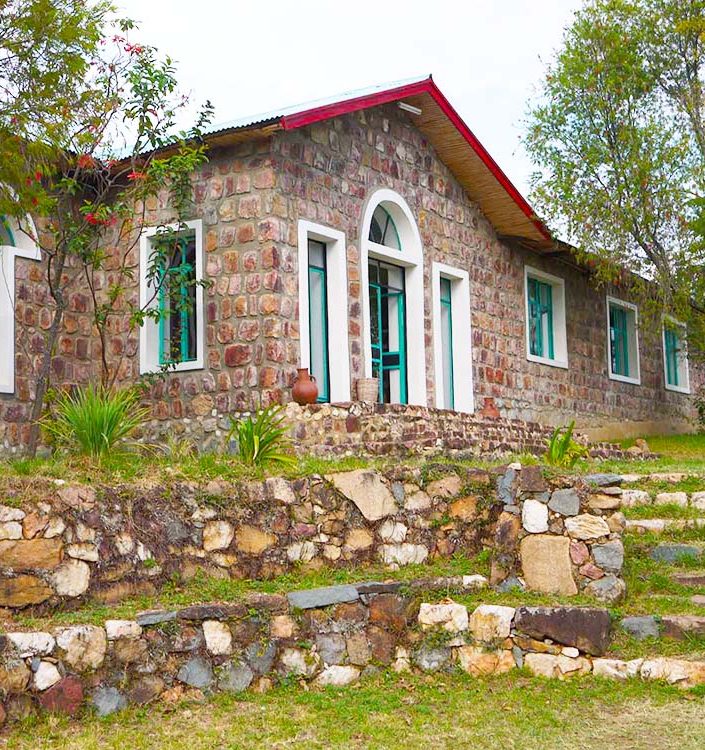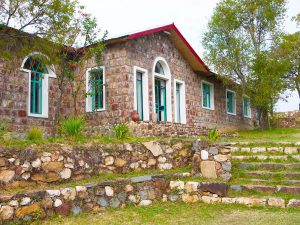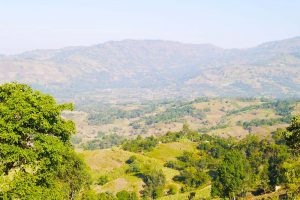
Dispatch Report on Brain Circulation (Ethiopia)
Kyoto University Graduate School of Asian and African Area Studies, Associate Professor
Morie Kaneko
From January 4–10, 2017, I conducted research meetings and data gathering in Ethiopia.
After arriving in Addis Ababa on January 4, I had a research meeting on paradigms in African Area Studies with Dr. Getaneh Mehari, chair of the Department of Social Anthropology at Addis Ababa University. In light of the fact that Addis Ababa University’s Social Anthropology Department has just celebrated the fiftieth anniversary of its founding, department chair Dr. Getaneh and I reviewed the history of the partnership between the Kyoto University Center for African Studies and Addis Ababa University’s Social Anthropology Department, discussing the joint activities and research reviews that have been published as one portion of the output of this program. Additionally, we shared information and discussed session contents with regard to the international meeting this program has scheduled for next year. I proposed several session topics, related to local knowledge in African modern context. We also agreed the idea that this meeting should be the place for academic exchanges among young scholars from Kyoto university and Addis Ababa University, Ethiopia. We confirmed the objective of reorganizing research paradigms in the modern study of this region of Africa and debated presentation candidates. Furthermore, as an example of a modern context in Africa, we focused upon formal education, once again confirming that we would discuss the ways in which local knowledge is currently applied within communities.
The following day, I discussed with Dr. Gebre, the program’s principal partnership researcher, the research activities carried out within the partnership between Kyoto University and Addis Ababa University, focusing especially on the questions of cooperation and review within anthropological research carried out in southwestern Ethiopia. In addition, we shared regional information, such as that regarding public safety in southwestern Ethiopia. Finally, we shared information regarding the program’s international meeting, which is scheduled for next year.
From January 6–7, I traveled from Addis Ababa to Jinka. In Jinka, I visited South Omo Research Center (Picture 1), which is Arba Minch University umbrella organization, and gathered materials that concern, the production of local knowledge pertaining to livelihood activities within the context of research paradigms in African studies. I met with an administrative official at the district government office and gathered information regarding policies dealing with livelihood activities and the effects of these policies. Following this, I visited a region whose status had four years earlier been promoted to that of a city and met with the mayor, who spoke with me about the current state of livelihood activities. Accompanying the region’s promotion to city status, agricultural land has been transformed into residential land, and independent lifestyles made possible by previous livelihood activities alone are facing increasing difficulty. I conducted interviews and gathered related materials on the subject of the state of people’s livelihood activities and their new ventures.
 Picture 1
Picture 1
On January 8, I visited a highland agricultural community (Picture 2) in southwestern Ethiopia that cultivates ensete, a member of the banana family. At the village office, I conducted information gathering on the state of people’s livelihood activities and the effects of agricultural policies. In recent years, largely in highland agricultural communities, agricultural cooperatives have been established, primarily among young people who have received higher education that utilizes modern technology in the production of agricultural goods. I conducted interviews with core members of these organizations and gathered related material to verify the state of their activities. From these conversations, I learned that sale volumes had been sluggish; agricultural goods, even when they are produced, are restricted in volume due to the fact that the infrastructure for vehicle to transport these goods is not sufficiently developed, and furthermore, the uses of processed goods that have not been widely distributed before are unfamiliar to consumers. Following this, I began travel back to Addis Ababa, arriving there on January 9.
 Picture 2
Picture 2
Afterward, I again met with Dr. Gebre and shared the information that I had gathered. We conducted a discussion on the future reorganization of paradigms in African studies, especially in research within the southwestern region. On January 10, I began my trip back to Japan.









